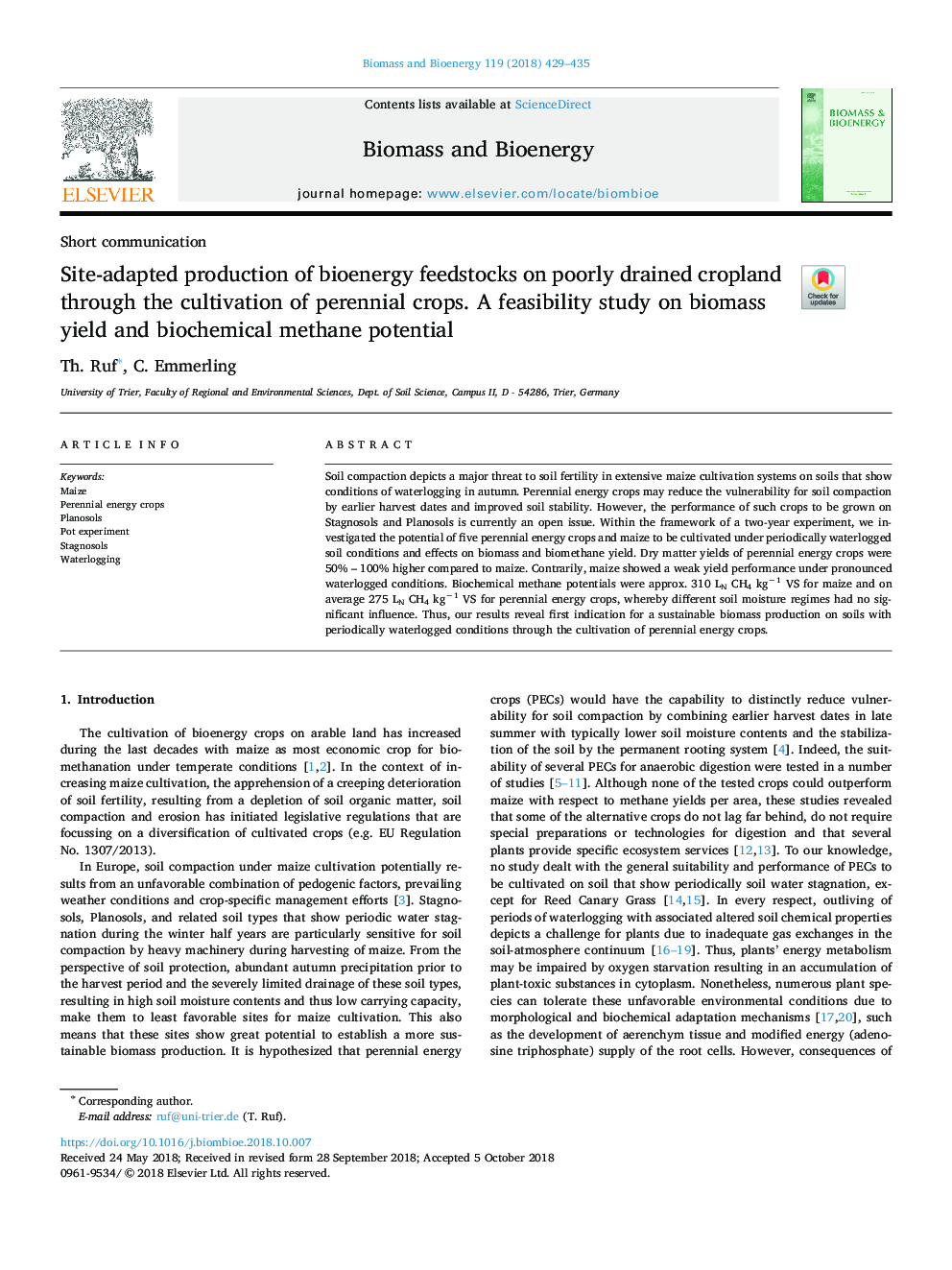| Article ID | Journal | Published Year | Pages | File Type |
|---|---|---|---|---|
| 11263683 | Biomass and Bioenergy | 2018 | 7 Pages |
Abstract
Soil compaction depicts a major threat to soil fertility in extensive maize cultivation systems on soils that show conditions of waterlogging in autumn. Perennial energy crops may reduce the vulnerability for soil compaction by earlier harvest dates and improved soil stability. However, the performance of such crops to be grown on Stagnosols and Planosols is currently an open issue. Within the framework of a two-year experiment, we investigated the potential of five perennial energy crops and maize to be cultivated under periodically waterlogged soil conditions and effects on biomass and biomethane yield. Dry matter yields of perennial energy crops were 50% - 100% higher compared to maize. Contrarily, maize showed a weak yield performance under pronounced waterlogged conditions. Biochemical methane potentials were approx. 310 LN CH4 kgâ1 VS for maize and on average 275 LN CH4 kgâ1 VS for perennial energy crops, whereby different soil moisture regimes had no significant influence. Thus, our results reveal first indication for a sustainable biomass production on soils with periodically waterlogged conditions through the cultivation of perennial energy crops.
Related Topics
Physical Sciences and Engineering
Chemical Engineering
Process Chemistry and Technology
Authors
Th. Ruf, C. Emmerling,
